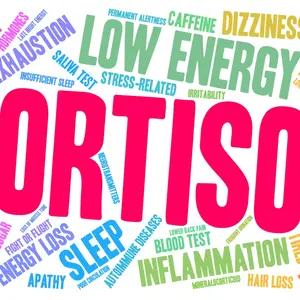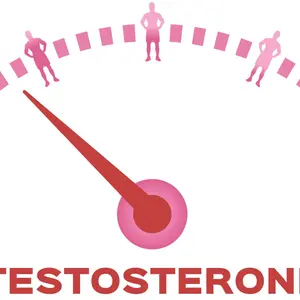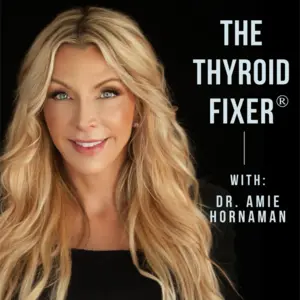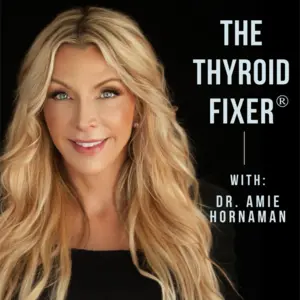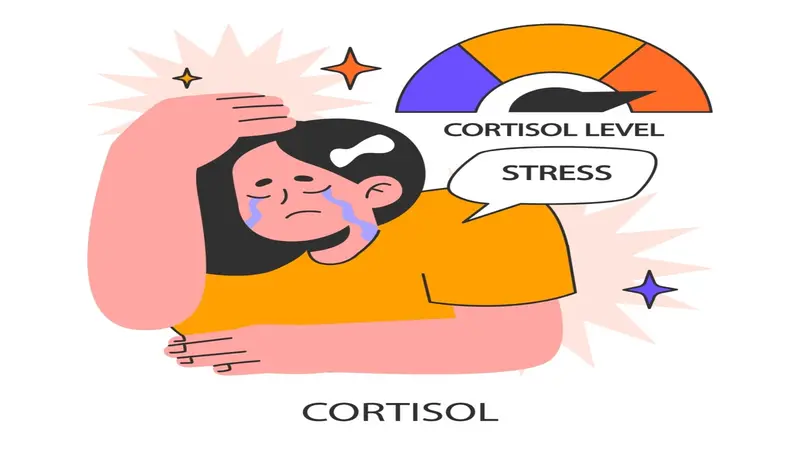

Functional Medicine

Functional Medicine
Understanding Cortisol Imbalance
The Link Between Cortisol and Stress: What It Means for Your Health
Have you ever felt inexplicably exhausted, struggled with stubborn belly fat, or found yourself wide awake at 2 a.m. with your mind racing? These are not just quirks of modern life—they could be signs that your body’s stress hormone, cortisol, is out of balance. Understanding the link between cortisol and stress can be empowering. Emerging scientific research reveals that dysregulated cortisol can profoundly affect your health. The good news is, you likely have more influence over your cortisol rhythm than you might think.
Cortisol: Your Body’s Master Stress Regulator
Cortisol is produced by your adrenal glands and orchestrated by the brain’s hypothalamic-pituitary-adrenal (HPA) axis. In short bursts, it’s your ally: helping you wake up in the morning, respond to challenges, recover from illness, and keep inflammation in check. But in today’s relentlessly demanding world, chronic stress keeps cortisol levels high—or, paradoxically, can lead to them crashing too low—setting off a cascade of health effects.
Stress is the primary driver of elevated cortisol levels. When you are stressed – emotionally, physically or because of chemical, nutritional, hormonal and environmental factors – your body sends signals to your adrenal glands to release cortisol. Poor sleep, chronic illness, blood sugar imbalances, and even too much caffeine can trigger high cortisol levels. Furthermore, in women going through perimenopause or menopause, hormonal shifts and imbalances can also affect cortisol levels.
The Surprising Science: When Cortisol Goes Awry
High Cortisol: The Hidden Saboteur
- Blood Sugar, Weight Gain and Metabolic Syndrome: Cortisol signals to the liver to release glucose. When stress is chronic, this leads to persistently high blood sugar and increased insulin resistance, fueling weight gain—especially around the belly. Visceral fat, in turn, raises the risk of heart disease and Type-2 diabetes.
- Blood Pressure and Cholesterol: Elevated cortisol raises blood pressure and alters fat metabolism, leading to higher cholesterol and triglycerides.
- Bone and Collagen Breakdown: Prolonged high cortisol inhibits bone formation and collagen synthesis, increasing risk for osteoporosis, fractures, and even premature skin aging.
- Suppressed Immunity and Chronic Inflammation: While acute cortisol dampens inflammation, chronic exposure suppresses immune function—making you more susceptible to infections and, ironically, chronic inflammation.
- Brain Fog and Mood Swings: High cortisol can shrink the hippocampus (the brain’s memory center), impair cognition, and contribute to depression and anxiety.
- Physical Coordination: Acute cortisol spikes—even from exam stress—can impair balance and motor skills, a finding that’s both surprising and actionable.
Low Cortisol: The Other Side of the Coin
When the stress system is overtaxed, cortisol production can plummet, leading to:
- Exhaustion, Fatigue and Burnout: Profound, unrelenting tiredness, muscle aches, and poor stress tolerance.
- Low Blood Pressure and Blood Sugar: Dizziness, shakiness, and even fainting.
- Frequent Infections and Autoimmunity: Without enough cortisol to regulate immune responses, the body becomes vulnerable to infections and autoimmune diseases.
- Fibromyalgia and Chronic Fatigue: Mounting evidence suggests that altered cortisol rhythms contribute to pain, sleep disruption, and overwhelming fatigue for patients struggling with fibromyalgia and chronic fatigue.
Genetics, Relationships, and the Power of Perception
Research reveals that genetic differences in cortisol receptors and binding proteins mean not everyone responds to stress the same way. Furthermore, the health of your personal relationships can also impact stress tolerance and resilience.
Cortisol and Your Relationships: Some studies show that positive intimate relationships—like having a happy partner—can measurably lower your cortisol levels, highlighting the profound role of social connection in stress resilience. A 2024 study found that older adults had much lower cortisol levels when their partners reported feeling happy. This isn’t just a feel-good finding—shared emotional well-being creates tangible shifts in stress hormone regulation.
Chronic Stress and the Brain: It’s not just “in your head.” Chronic exposure to high cortisol has been linked to changes in brain structure, including loss of volume in regions associated with memory and emotion, and increased risk for conditions like depression, irritable bowel syndrome, cognitive impairment, and even Alzheimer’s and Parkinson’s disease.
Actionable Steps to Restore Balance
The good news is, you can actively shape your cortisol rhythm and reclaim your health. Here’s how:
- Nurture Relationships: Positive social bonds are more than emotional support—they’re biological medicine.
- Nutrient Dense Diet: Focus on whole foods, especially green leafy vegetables high in B vitamins. Limit fruit to two servings of low-glycemic options. Avoid alcohol, caffeine, sugar, refined carbohydrates, and processed foods.
- Adaptogenic herbs: Herbs such as ashwagandha, eleuthero, and rhodiola can help regulate stress hormones. If cortisol is high, use formulas with phosphatidylserine. If it's low, licorice and ginseng may help (note: ginseng and licorice may raise blood pressure. Use with caution and in consultation with your healthcare provider).
- Mindfulness and Relaxation: Regular meditation, breathwork, and relaxation techniques have been shown to lower cortisol and improve resilience.
- Physical Self-Care: Moderate exercise, restorative sleep, and balanced nutrition stabilize cortisol and buffer the effects of stress.
- Monitor and Personalize: If you suspect cortisol imbalance, speak with your healthcare provider about testing and tailored interventions. Any form of distress--whether it be physical, emotional or chemical--will have an effect. Learning to track your body's responses is a powerful tool. You can learn to be your own medical detective to conquer cortisol dysregulation and improve overall health.
- Seek Support Early: Don’t ignore signs like sleep disruption, mood swings, or unexplained fatigue. Early intervention canprevent long-term imbalance.
Rewrite Your Health Story
Cortisol is not your enemy—it’s your body’s call for balance. By listening to its signals and taking proactive steps, you can transform stress from a silent saboteur into a catalyst for resilience and growth. Every mindful breath, nourishing meal, and supportive relationship is a message to your biology: you are safe, you are supported, and you are ready to thrive. Understanding what is driving your cortisol dysregulation is the first step on the path to healing.
The post The Link Between Cortisol and Stress: What It Means for Your Health appeared first on Vibrance for Life and is printed here with permission.
REFERENCES
- P A, Vg A, K T, A K, Dp M. Clinical review: The pathogenetic role of cortisol in the metabolic syndrome: a hypothesis. The Journal of clinical endocrinology and metabolism. 2009;94(8). doi:10.1210/jc.2009-0370
- R F, Mc I, Nh A, C M, E D, Jm C. Cortisol effects on body mass, blood pressure, and cholesterol in the general population. Hypertension (Dallas, Tex : 1979). 1999;33(6). doi:10.1161/01.hyp.33.6.1364
- Zuccarella-Hackl C, Princip M, Holzgang SA, et al. Cortisol Reactivity to Acute Psychosocial Stress in Physician Burnout. Biomedicines. 2024;12(2):335. doi:10.3390/biomedicines12020335
- Dd P, Mr A, Hf A, K A, Lj C, Rt F. Characterization of Cortisol Dysregulation in Fibromyalgia and Chronic Fatigue Syndromes: A State-Space Approach. IEEE transactions on bio-medical engineering. 2020;67(11). doi:10.1109/TBME.2020.2978801
- Yoneda T, Pauly T, Ram N, et al. “What’s yours is mine”: Partners’ everyday emotional experiences and cortisol in older adult couples. Psychoneuroendocrinology. 2024;167:107118. doi:10.1016/j.psyneuen.2024.107118
- Knezevic E, Nenic K, Milanovic V, Knezevic NN. The Role of Cortisol in Chronic Stress, Neurodegenerative Diseases, and Psychological Disorders. Cells. 2023;12(23):2726. doi:10.3390/cells12232726
- Sic A, Cvetkovic K, Manchanda E, Knezevic NN. Neurobiological Implications of Chronic Stress and Metabolic Dysregulation in Inflammatory Bowel Diseases. Diseases. 2024;12(9):220. doi:10.3390/diseases12090220


 By
By

